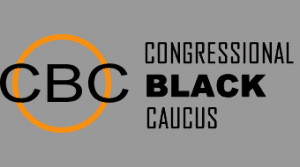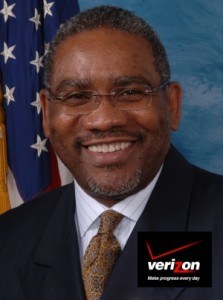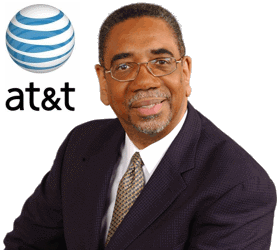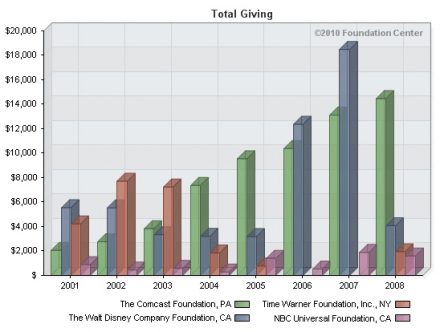
Phillip "It's Haunting Time for AT&T, Verizon and their good friends at Digital Society" Dampier
Imagine if you lived in a country where broadband competition actually delivered real innovation and savings, overseen by a consumer protection agency that made sure providers in a barely competitive marketplace actually delivered on their “highly competitive” rhetoric.
Australia’s National Broadband Network (NBN) will deliver exactly that, with a check and balance system that makes sure advertiser claims meet reality and that “robust competition” means… robust competition.
One industry-backed front group, Digital Society, doesn’t think that idea is fair to big telecom companies (like those funding its operations), and wants none of that here in the States.
Nick Brown doesn’t object too much to Australia’s plan to deliver fiber-to-the-home connections offering 100/50Mbps service to 93 percent of residents. He just doesn’t want the Australian government overseeing how private providers use (and how much they can charge to access) the publicly-owned network:
Internet Service Providers in Australia will be forced to compete with each other via the “Competition and Consumer Commission”. The problem with this is that a supposedly ubiquitous commission deciding what is and what isn’t competition and fair pricing stands a fair chance of not actually playing out in any other fashion than simply being a price fixing commission.
[…]Because the NBN will only act as a wholesaler and treat all ISP retailers equally, ISP’s no longer have the ability to develop their own unique contracts that would reduce costs to consumers. All backhaul would be priced to all ISP’s at the same rate. So realistically no company has a significant advantage over the other. That does potentially create a good deal of choice, but that does not necessarily ensure competition. This would be akin to going to the grocery store and on the shelf were 5 different brands of soft drink, but every single brand tasted exactly like Coca-Cola. You would have a lot of choice in that situation, but there would be no real competition between those 5 brands, because taste is the competitive factor. For the Australian, this means that ISP’s will likely be forced to start bundling services to gain advantages over one another. Something that is not always considered attractive here stateside.

NBNCo is responsible for the deployment and installation of Australia's fiber to the home network.
Brown’s bitter-tasting public-broadband philosophy is based on the inaccurate notion that incumbent private providers are just itching to deliver state-of-the-art broadband service across Australia. If the darn federal government didn’t get in the way and steal their thunder with a nationwide fiber network, Aussies would be enjoying world class Internet access over copper phone wires and usage-limited wireless 3G networks right now. Even worse, the Australian government that will finance the entire operation also has the temerity to set ground rules for private companies reselling access to consumers and businesses! How dare they oversee a network bought and paid for by Australian taxpayers (he objects to the funding as well.)
Brown must also still be living in Australia if he missed the parade of American providers repricing services to push people into “triple-play bundles” whether they want them or not. And we don’t even get the fiber to go with it. For most Australians, they no longer care whether it’s Diet Coke, Pepsi One, Cherry Coke, or even RC Cola for that matter — as long as it arrives on a fiber network built by and for their interests (instead of Telstra’s), it’s far better than what they have now.
In reality, broadband issues hold a front-and-center position in Australian politics, and the Labor Government which supports an aggressive national broadband plan that puts America’s proposed broadband improvements to shame was -the- issue that keeps that government in power today. Why? Because Australia is well behind others in providing broadband access at reasonable speeds and prices. Australian private providers maintain a nice little arrangement delivering sub-standard, near-monopoly service at some of the highest prices around, all usage-limited and speed throttled. Despite years of negotiations with big players like Telstra, the privatized phone company, broadband improvement has moved at a glacial pace (too often by their design).
The development of the National Broadband Network for Australia was driven by private provider intransigence. Even Brown recognizes the logistics of the proposed fiber network is “very smart and very common sense” for a country like Australia, which he considers a close cousin geographically to the United States. Brown also admits the use of fiber straight to the home “‘future proofs’ Australian networks and would allow for easier improvement in the future.”
[flv width=”640″ height=”380″]http://www.phillipdampier.com/video/ABC Radio Battle of the broadband 8-11-2010.mp4[/flv]
ABC Radio National offered a comprehensive review of the competing plans from Australia’s political parties to address broadband issues as the country drops to 50th place worldwide in broadband excellence. (9 minutes)
While Australia ponders a fiber future, today’s broadband picture across the country is less idyllic.
 The minority of Australians receiving service over cable broadband, available mostly in the largest cities, continue to face usage-limited service and higher prices than American providers.
The minority of Australians receiving service over cable broadband, available mostly in the largest cities, continue to face usage-limited service and higher prices than American providers.
Most Australians get their service from DSL connections offered by Telstra and third party companies leasing access to Telstra facilities. Telstra’s network is based almost entirely on aging copper wire that cannot deliver broadband to most rural populations. Telstra’s long term broadband plan for Australia depends on milking every last cent out of those copper wires while raking in even bigger profits from usage limited and expensive wireless data plans. Just last month, Telstra was fined $18.5 AUS million dollars for monopolistic behavior by impeding competitive access to its telephone network. No wonder the country had enough.
Brown labeled the Australian government’s buyout of Telstra’s copper wire network a “negative,” as if they were stuck with a pig in a poke. That suggests Brown does not understand the actual plan, which relies on reusing existing infrastructure like poles and underground conduit to install fiber at an enormous savings — both in billions of dollars in reduced costs and deployment time. The alternative would require the government to obtain agreements with Telstra-owned facilities to share access or construct their own facilities from the ground up. Telstra has no incentive to spend money to upgrade their networks, much less decommission them. Logistically, the plan cuts through enormous red tape and guarantees Australians no one will be stuck waiting decades for the eventual retirement of copper phone wiring.
Call it Fiber Optic Broadband for Copper Wire Clunkers — the government has not nationalized the phone network — it wants to buy it a fair price, from a willing seller who will be able to use the new network to deliver some of its own services.
The horror show for groups like Digital Society is the thought private companies will actually be forced to deliver the competition and real savings they routinely proclaim in press releases, but never actually deliver to consumers. The Australian people will own the fiber playground private companies will play on, so why shouldn’t they have the benefit of oversight to make sure the game is played fairly?
Australia’s Competition & Consumer Commission is equivalent to the Consumer Product Safety Commission, the Federal Trade Commission, and a state Attorney General all rolled into one. The ACCC is an independent statutory authority that works for consumers. It promotes and enforces real competition and fair trade.
The ACCC’s involvement in broadband regulation includes: stopping false advertising, helping intervene and resolve disputes over access and billing issues, and being an impartial observer about broadband uptake and measuring how competition actually delivers better service and savings for consumers.
What Brown dismisses as “a price fixing commission” is in reality a consumer protection agency with enforcement teeth. The ACCC has a solid track record. For instance, the broadband industry in 2009 itself admitted the ACCC stopped a “race to the bottom” in wild advertising claims:
In August last year, we sat down with the CEOs of the major telecommunication providers, Telstra, Optus and Vodafone Hutchison Australia. They acknowledged that there was a problem, exacerbated by a “race to the bottom” by industry participants in their advertising practices. The CEOs showed a ready willingness to resolve the issue on an industry-wide basis.
After analysing complaints, the ACCC identified the 12 most prevalent types of potential misleading conduct made in telecommunications. Some of these included:
- use of terms such as “free”, “unlimited”, “no exceptions”, “no exclusions” or “no catches” when this is not the case;
- headline price offers in the form of “price per minute” for calls made using mobile phones and phone cards when there are other fees/charges which are not clearly disclosed; or
- headline claims relating to price, data allowances, total time allowances, speeds and network coverage, where the claims cannot generally be achieved by consumers.
The three industry leaders have provided a court enforceable undertaking to review and improve advertising practices so that consumers are better informed about the telecommunications products they purchase. They have undertaken that their advertising will not make these claims in circumstances where they are likely to be misleading to consumers.
Further the majors have also agreed that they will take reasonable steps to ensure that this commitment will extend to any other players with whom they have commercial agreements which allow them to control the advertising and promotion of goods or services.

Australians are starting to receive consent forms for free installation of fiber broadband in their homes.
I can see why Digital Society, a group partly funded by telecommunications companies, would object to the ACCC stopping Big Telecom’s ill-gotten Money Party-gains.
ACCC also put a stop to promotions that tricked consumers into signing up for mobile data plans that included “free” netbooks, high value gas gift cards, or cash rebates. The Commission discovered these “promo plans” weren’t giving away anything at all — they simply added the retail cost of the “free” item to the plans’ charges.
The ACCC received a court enforceable undertaking from Dodo Australia Proprietary Limited for the advertising of some of their mobile plans. Dodo had advertised that consumers would receive either an Asus Eee PC, a fuel card or a cash payment when they signed up to a ‘free offer’ plan.
However, cheaper mobile cap plans that did not include the ‘free’ offers were comparable in value and services. After raising these concerns with Dodo, they promptly ceased publishing the ‘free offer’ advertisement and undertook to ensure the affected customers would receive the goods for free, either by way of cash refund or by reducing the monthly charges for the ‘free offer’ plans.
That mean and nasty ACCC, ruining all of the fun for providers delivering tricks and traps for their customers. Caveat emptor, right?
But the most ludicrous claim of all comes towards the end of Brown’s piece, when he claims the National Broadband Network will leave Australians with even higher priced, usage-capped access:
Australia traditionally has had low bandwidth caps. Even just five years ago while most Americans were enjoying unlimited bandwidth with their broadband connections, I was living in Melbourne, Australia and was limited to a 1GB cap per month via my Telstra connection. The likelihood of seeing 100Mb uncapped connections is highly suspect. Australians may enjoy these speeds, but they will likely be extremely expensive with low bandwidth caps or limited to high priced premium tiers.
Brown can’t blame the private company that delivered his abysmal Internet service without his “free market knows best” philosophy falling apart. It wasn’t the Australian government that provided him a 1GB monthly usage allowance — it was Telstra, and five years later the company is still usage-limiting Australian broadband consumers. The National Broadband Network was designed to tackle that problem once and for all. Brown apparently doesn’t realize the last argument private providers have used to justify usage caps — insufficient overseas capacity — is being addressed by new super-high-capacity undersea fiber cables stretching across the Pacific. The issue of “usage cap” abatement is among the top bullet points for constructing the NBN.
Brown would be right when he suggests that Australians may enjoy faster speeds, but with low usage caps and high prices — if Telstra was the only company providing the service. The new network will provide speeds faster than most Americans enjoy, with enormously expanded capacity. Providers like Telstra have an incentive not to deliver the unlimited service that fiber network can deliver, as it will reduce their profits. But since any company can access the network and compete, Telstra’s loss in market power will also erode their pricing power. When a consumer protection mechanism is added, Telstra won’t just be answering to their shareholders’ demands for greater value. They’ll also answer to the ACCC and the consumers who will pay for and maintain the network.
That may not add up to mega-profits for Big Telecom, but it certainly makes a whole lot of sense to consumers and small businesses who will finally be able to get 21st century broadband at a reasonable price.
Even worse for Digital Society’s friends — AT&T and Verizon — who fund the group through its connection with Arts+Labs, it might provide a blueprint for how America’s broadband future should be built.
[flv]http://www.phillipdampier.com/video/ABC TV National Broadand Network 8-15-10.flv[/flv]
ABC-TV (Australia) debated the merits of competing broadband plans from the incumbent Labor government, which supports a National Broadband Network delivering fiber to the home, versus a cheaper plan from the coalition opposition which promoted a private industry-favored initiative delivering improved broadband only to rural areas. The Labor government initiative won the day when two rural independent members of Parliament, Rob Oakeshott and Tony Windsor announced they’d support Prime Minister Julia Gillard, giving her the 76 votes required to form a minority Labor government. Windsor is an enthusiastic supporter of the NBN, telling Sky News “’you do it once, you do it right, you do it with fiber.” Oakeshott said Labor’s plan to deliver real broadband for the 21st century was a major reason he backed the Labor government. For the first time ever, fiber optic broadband was the key factor in determining who would govern a country. (5 minutes)
 Color of Change needs everyone to take a moment and let members of the Congressional Black Caucus know we need them to stand up for Net Neutrality and broadband reform to help Black communities harness the political, economic, educational, and cultural power of the Internet.
Color of Change needs everyone to take a moment and let members of the Congressional Black Caucus know we need them to stand up for Net Neutrality and broadband reform to help Black communities harness the political, economic, educational, and cultural power of the Internet.

 Subscribe
Subscribe













